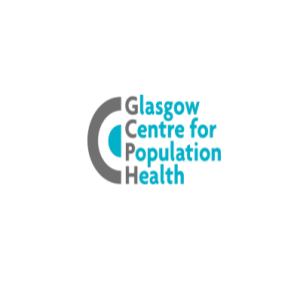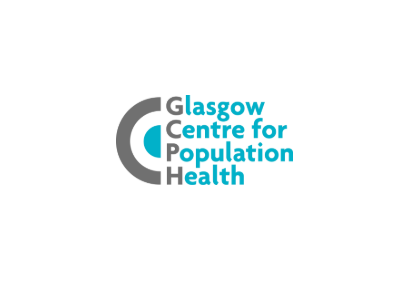Episodes

Tuesday Dec 12, 2023
Tuesday Dec 12, 2023
In this talk Professor Friel explored ways to transform the consumptogenic system – the system of actors and institutions, policies, commercial activities and norms that incentivizes the excessive production and consumption of goods and services that are harming human health, widening social inequities and destroying the planet.
With a specific focus on commercial practices, Professor Friel discussed the entrenched power inequities that ensure little effective political and policy attention is given to transform the consumptogenic system and act in the interests of human and planetary health. She explored the ideational, institutional and structural factors that have enabled the pervasive fetishism of market-forces, financialization, hyperglobalization, deregulation, and individualism, which entrench an exponential growth model, consumptogenic economic interests, and an individualised model of health.
The talk concluded with a discussion of ways to recalibrate these power inequities such that planetary health equity goals are at the forefront of policy and action. Professor Friel highlighted the role of compelling narration of alternative ideas, strategic use of institutional processes, and social mobilization among like-minded and unusual bedfellows.

Wednesday Dec 06, 2023
GCPH Seminar Series 20: Seminar 2 - Health inequalities: What’s changed and what now?
Wednesday Dec 06, 2023
Wednesday Dec 06, 2023
In this second seminar in Seminar Series 20, reviewed how health inequalities have changed in Scotland over the past 20 years since the establishment of the Glasgow Centre for Population Health, our understanding of those changes, and what that means for ongoing efforts to improve health and tackle inequality.
Dr Walsh and Prof McCartney outlined exactly what has changed in relation to health inequalities over the period, and importantly what has driven those changes. On the journey to understanding where we are now and how we got here, they looked back at what the trends showed 20 years ago when Scotland’s health divergence from Western Europe (and Glasgow’s divergence from other UK cities) was becoming clearer, and discussed the detailed, comparative, UK and international research that followed. Bringing the talk to the present, they outlined the most recent, deeply concerning, trends which have seen a new form of inequality emerge, and which urgently require concerted action to prevent these worsening further.
The seminar will be Chaired by award-winning journalist, Dani Garavelli, who was joined by a small panel of respondents.

Thursday Nov 16, 2023
GCPH Seminar Series 20: Glasgow 2003 to Glasgow 2023: What’s changed and what now?
Thursday Nov 16, 2023
Thursday Nov 16, 2023
Since 2003, our annual Seminar Series has been curated to share perspectives from internationally renowned speakers on issues pertinent to contemporary population health. Our hope being, to bring fresh perspectives unlikely otherwise to be heard in Glasgow, and in Scotland, but which we considered important as we sought to understand and respond to population health challenges.
Twenty-years on, attendees have heard from over 100 speakers on topics as diverse as neuroscience, the economy, epidemiology, and psychology, and from leading thinkers in what have at times been new and emerging areas, seeking innovative responses to health inequalities (including early years, resilience, racism, complexity and systems thinking). Subsequently, many of these have become mainstays of our approaches.
We are using our 20th series as an opportunity to take collective stock of how the world, the city, economy and society have changed over the years. What are the new sources of challenge, hope and response and where to next for improving health and tackling inequality?
This opening seminar in series 20, Glasgow 2003 to Glasgow 2023, will hear perspectives from across key city sectors. Professor Chik Collins, Director of GCPH, will ask them, ‘what’s changed and what now?’

Tuesday Jul 11, 2023
Tuesday Jul 11, 2023
In this talk, Professor Fenton will explore the importance of incorporating anti-racism and addressing structural discrimination in public health efforts to tackle racial and ethnic health disparities. He will discuss how systemic racism and discrimination contribute to health inequities and how a public health approach that recognises and addresses these factors can lead to more effective and equitable solutions. He will also explore practical strategies for incorporating anti-racism and addressing structural discrimination in public health policies and programs. By working towards a more equitable and just health and care system, we can improve health outcomes and overall wellbeing of all individuals and communities.

Tuesday Jan 31, 2023
Insight into the Understanding Glasgow website
Tuesday Jan 31, 2023
Tuesday Jan 31, 2023
Our Digital Communications Officer Hannah Black recently sat down with GCPH’s Bruce Whyte and Dr Katharine Timpson to get some insight into our Understanding Glasgow website, what it is and the many uses its data has.

Tuesday Dec 20, 2022
Tuesday Dec 20, 2022
Sarah McKinley will present community wealth building as a means to democratise local economies so that they produce wellbeing and positive health outcomes for people in their daily lives. Community wealth building action is already happening in communities across the world. But in this moment of compounding crises, it is more urgent than ever to intentionally connect, scale, and resource these actions to move them from the fringes to the mainstream of economic development practice.
Find out more at www.gcph.co.uk/events/226

Monday Sep 12, 2022
Monday Sep 12, 2022
Delivering services, undertaking research, influencing policy and public campaigns are some of the measures used by charities in Scotland to tackle poverty. In such challenging times, are these measures sufficient to disrupt the underlying causes of poverty?
Drawing upon their timely book ‘The Role of Charity and Poverty in Advanced Welfare States’, Andrew and Cameron will pose critical questions in this seminar about the value and role of charity in contemporary society. Charity, in the form of voluntarily giving one’s time and resources to care for and support people, is unambiguously seen as an individual virtue and a sign of a flourishing and caring society. Voluntary support and ground up action can represent a social good and direct benefit to people receiving help. These charitable acts, however, can let governments off the hook, can benefit the giver more than the receiver, and can divert attention and momentum from the structural change required to prevent poverty.
The speakers will seek to both identify the limitations of charity to people in receipt of it and outline how it can be a source of significant social good through facilitating systematic transformation to contribute towards a more just society.

Tuesday Jun 21, 2022
Tuesday Jun 21, 2022
Action to address Glasgow’s and Scotland’s social and health inequalities is urgently needed. These issues are well recognised, deep-seated and long-standing. Despite decades of efforts to address these, Glasgow still falls behind the rest of Scotland in terms of health outcomes and Scotland has a poor health profile compared with the rest of the UK and Western Europe. We are now seeing an overall stalling in life expectancy improvements across Scotland and in our most deprived communities, life expectancy has started to fall.
There is widespread recognition in policymaking that population health improvement requires a combined effort across policy domains to tackle the structural determinants of health. Indeed, when it comes to policymaking, there have been positive developments in Scotland and addressing health inequalities is a clear and distinct policy priority. However, despite this, progress has not matched local and national ambitions for Scotland to be a fairer and healthier nation. So why is this the case, what more is needed, and how can this be turned around?
In this seminar, Kezia will share her unique insights and knowledge having experienced both sides of policy development – as a former Scottish Member of Parliament and Leader of the Scottish Labour Party, and now in academia, in her role as Director of the John Smith Centre for Public Service at the University of Glasgow. Kezia will explore this ‘implementation gap’, using examples from her longstanding interest in and work on housing/homelessness and with care experienced young people.

Wednesday Nov 24, 2021
The social crisis within the climate crisis - a lecture by Dr Gary Belkin
Wednesday Nov 24, 2021
Wednesday Nov 24, 2021
In this seminar, Dr Belkin explored what climate change means for population mental health, the need to redesign our mental health system, what a ‘next system’ looks like, and what we need to do get there. He showed that as the effects of environmental and climate change grow in severity, reach, frequency and mental health and social impact, so will the demands on an already over-burdened mental health system. He argued that the ‘social climate’ – emotional resilience, social ties, collective efficacy – requires consideration in the face of climate challenges to create a mental health ecosystem that can not only meet overwhelming prevention needs and illness care, but also help anchor scaled civic and collective action to do much of the work of adapting to and mitigating the climate and environmental change itself.

Tuesday Sep 28, 2021
Tuesday Sep 28, 2021
The COVID-19 pandemic has swept the world, with more than four million people dying of the disease so far. COVID-19 is the defining public health crisis of a generation, and it should generate a full-scale assessment of how public health has fared in this moment – what we have done well and what we have not, and the implications this has for the future of public health.
This presentation addressed priorities for research, education, and practice agendas in the post-COVID-19 world.

